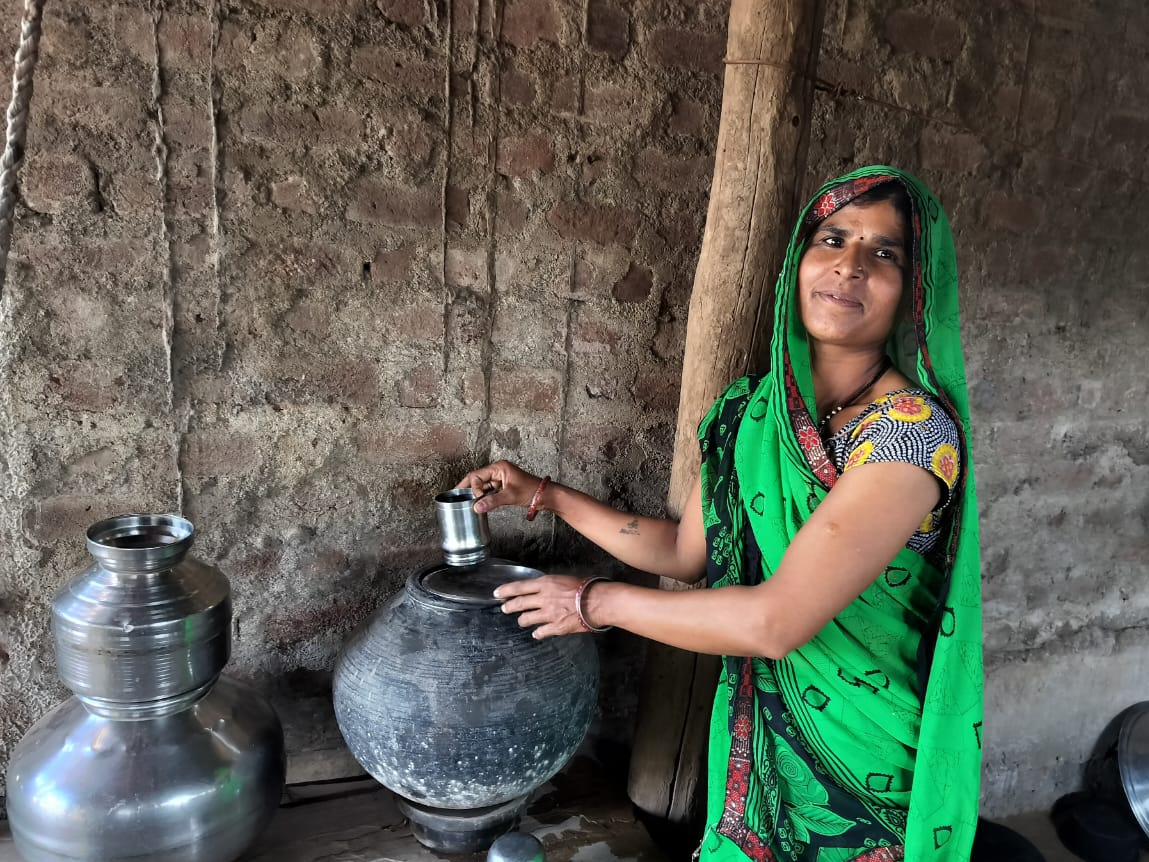Masru Bai, along with her husband and their three daughters live in Beedipur village, the Bakaner district of Madhya Pradesh, India. Masru and her husband both work as labourers to support their family. Before the water, sanitation, and hygiene programme, the entire village relied on hand pumps for water, unaware that the water contained harmful fluoride. This lack of knowledge led to various health issues, affecting both children and elderly individuals in the community.
Water Challenges and Health Issues
The family’s daily struggle for water from the contaminated hand pumps affected their health. Children experienced dental problems, and the elderly faced knee pain. The villagers were unaware of the fluoride content in the water until our team conducted water and urine tests, revealing the alarming levels of fluoride.
Implementation of Fluorosis Mitigation
The community took immediate action after discovering the presence of fluoride water, by working with a local governmental organisation to have the contaminated pumps replaced by taps. This transformation not only improved water quality but also positively impacted the villagers’ health, addressing dental issues and knee pain.
Improved Hygiene Practices
Working with our partner, we introduced a WASH programme to improve hygiene practices within households, like washing hands with soap and water before meals and after defecation. Masru Bai shared how, previously, their method of storing water in containers on the ground led to hygiene challenges. With our guidance, they elevated the containers, ensuring better cleanliness and reducing the risk of water contamination. This simple change resulted in improved sanitation and reduced the prevalence of waterborne diseases in the village.
Enhanced Personal Hygiene
The introduction of menstrual hygiene education brought about a significant shift in the family’s practices. Masru and her daughters transitioned from using cloth during menstruation to sanitary pads, contributing to better personal hygiene. The family now understands the importance of regular bathing and maintaining cleanliness, practices that were previously hindered by the scarcity of water.
Community Awareness and Participation
Once the villagers were informed about the water quality and health impacts, they actively participated in adopting healthier practices. Regular meetings and discussions facilitated by our staff played a crucial role in fostering a sense of community responsibility and collective action. Village-level proposals were submitted to the local government to repair toilets for 21 households, plantation work, and construction of a pond and other structures to recharge the groundwater.
“I have witnessed the power of collaborative efforts, education, and sustainable interventions in transforming lives. The implementation of the Water, Sanitation, and Hygiene (WASH) programme, coupled with fluorosis mitigation measures, has not only elevated the quality of our water but has become a beacon of positive change in our community. Through awareness and collective action, we have embraced better hygiene practices, ensuring not just cleaner water but improved overall wellbeing. This journey represents the resilience of communities when empowered with knowledge and support.” Masru Bai.

